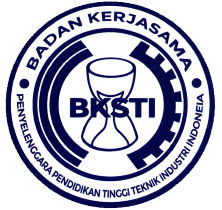Health Belief Model dan Budaya Individualis-Kolektif terhadap Kepatuhan Protokol Kesehatan
Abstract
Pandemi COVID-19 telah menyebar hampir di seluruh dunia termasuk Indonesia sejak Maret 2020, sehingga menyebabkan banyak orang terinfeksi. Pembatasan Sosial Berskala Besar (PSBB) diberlakukan dimana kegiatan di luar rumah dibatasi. Setelah masa PSBB dicabut, masyakarat dapat beraktivitas di luar rumah dengan tetap mematuhi protokol kesehatan. Kepatuhan pada protokol kesehatan tidak lepas dari persepsi masyarakat tentang kesehatan yaitu Health Belief Model. Selain itu, budaya turut berperan dalam menentukan perilaku sosial seseorang. Penelitian ini yang bertujuan untuk menguji hubungan antara health belief model dan budaya kolektif dengan kepatuhan protocol kesehatan. Metode penelitian yang digunakan adalah metode penelitian kuantitatif dengan teknik analisis korelasi. Jumlah responden dalam penelitian ini sebanyak 408 orang, dengan rentang usia 20-39 tahun dan berdomisili di Jakarta. Hasil penelitian menemukan perceived susceptibility, perceived severity, perceived benefits, perceived barriers, cues to action, self-efficacy memiliki hubungan dengan kepatuhan protokol kesehatan dan yang paling berhubungan signifikan adalah perceived susceptibility. Hasil penelitian diketahui pula horizontal individualism, vertical individualism, horizontal collective, vertical collective memiliki hubungan dengan kepatuhan protokol kesehatan dan yang paling berhubungan signifikan adalah horizontal collective dan vertical collective. Penelitian ini menyimpulkan semakin seseorang merasa rentan terpapar COVID dan budaya kolektif yang mematuhi protokol kesehatan dalam kelompoknya maka semakin tinggi pula kepatuhan.
Downloads
References
[2] https://corona.jakarta.go.id/id/artikel/mengulik-usia-pasien-positif-covid-19-di-jakarta, diakses 01 Maret 2021.
[3] Yastica, T. V., Salma, S. A., Caesaron, D., Safrudin, Y. N., dan Pramadya, A. R. Application of theory planned behavior (TPB) and Health Belief Model (HBM) in COVID-19 Prevention: A literature review, 2020 6th International conference on Interactive digital Media (ICIDM), Desember , 2020, pp1-4
[4] Jose R, Narendran M, Bindu A, Beevi, L. M, dan Benny, P.V., Public perception and preparedness for the pandemic COVID 19: A Health Belief Model approach, Clinical Epidemiology and Global Health, Volume 9, 2020, pp 41-46.
[5] Edelman, C. L., Mandle, C. L., Kudzma, E. C, Health promotion throughout the life span-e-book. Elsevier Health Sciences, 2014.
[6] Champion,V., Skinner, C, Health behavior and health education theory, research and pratice (4th edition). San Fransisco,CA: Jossey Bass Inc.
[7] Nies, M, A., McEwen, M., Community/ public health nursing: promoting the health of populations, 7 th edition. Canada: Elesevier, 2014.
[8] Jeong HS, Lee DW, Youn CH, Lee MK, Lee SJ, Suh YS, et al., Perception and performance of preventive behaviors for the pandemic influenza in hospital employees and outpatients. Yonsei Medical Journal. Volume 52, Number 1, 2011, pp 181-187.
[9] Hofstede, G. Dimensionalizing cultures: the hofstede model in context, Online Readings in Psychology and Culture, Volume 2, Number 1, 2011, pp 3-26.
[10] Cozma, I., How are individualismm and collectivism measured?. Journal of Applied Psychology , Volume 13, Number 1, 2012, pp 11-17.
[11] Vargas, J, H., Kemmelmeier, M., Ethnicity and contemporary american culture: a meta-analytic investigation of horizontal–vertical individualismm–collectivism. Journal of Cross-Cultural Psychology, Volume 44, Number 2, 2013, pp 195–222
[12] Germani, A., Buratta, L., Delvecchio, E., & Mazzeschi, C., Emerging adults and COVID-19: the role of individualismm-collectivism on perceived Risks and Psychological Maladjustment. Journal Environmental Research and Public Health, Volume 17, Number 10, 2020, pp 34-97.
[13] Biddlestone, M., Green, R., Douglas, K, M., Cultural orientation, power, belief in conspiracy theories, and intentions to reduce the spread of COVID-19.Journal British of Social Psychology, Volume 59, Number 1, 2020, pp. 663–673.
[14] Sugiyono, Statistika untuk penelitian. Bandung: Alfabeta, 2015.
[15] Tong, K, K., Chen, J, H., Yu, E, W., & Wu, A, M, S., Adherence to COVID-19 precautionary measures: applying the health belief model and generalised social beliefs to a probability community sample. Journal Applied Psychology : Health and Well-being, Volume 12, Number 4, 2020, pp.1205–1223
[16] Puspita, R.,Tamtomo, D dan Indarto, D., Health belief model for the analysis of factors affecting hypertension preventive behavior among adolescents in Surakarta. Journal of Health Promotion and Behavior, Volume 2, Number 2, 2017, pp 183-196.
[17] Sim, S, W., Moey, K, S., & Tan, N, C. (2014). The use of facemasks to prevent respiratory infection: a literature review in the context of the Health Belief Model. Journal PMC, Volume 55, Number 3, 2014, pp 160-167.
[18] Harapan et al., (2020). Perceived risk of being infected with SARS-CoV-2: A perspective from Indonesia. Disaster Med Public Health Prep, 10, 1-5. doi: 10.1017/dmp.2020.351
[19] Orlowski M., Introduction to Health Behavior: A Guide for Managers, Practitians and Educators. Cengage Learning, 2016.
[20] Badan Pusat Statistik, Perilaku masyarakat di masa pandemi COVID-19: Hasil survei perilaku masyarakat di masa pandemi COVID-19 (7-14 September 2020), 2020, diakses dari: https://covid19.go.id/edukasi/hasil-kajian/hasil-survei-perilaku-masyarakat-di-masa-pandemi-covid-19
[21] Rahmafika, C. A., Isfiya, A., & Rochmah, T. N (2020). Analisis faktor yang mempengaruhi kepauhan terhadap protocol kesehatan saat pandemi COVID-19 pada masyarkat Jawa Timur: Pendekatan Health Belief Model. Journal of Community Mental Health and Public Policy, 3(1), 1-10.
[22] Center for Strategic and International Studies (CSIS), Persepsi, efektivitas dan kepatuhan masyarakat dalam penerapan kesehatan COVID-19, 2021, Diakses dari covid19.csis.or.id/survei
[23] Aradista, A. M., Rini, A. P., & Pratitis, N. (2020). Hubungan Antara Health Belief Model dengan Perilaku Kepatuhan Kebijakan Pembatasan Sosial Berskala Besar (PSBB) Selama Pandemi COVID-19 pada Emerging Adult. SUKMA: Jurnal Penelitian Psikologi, Volume 1, Number 2, pp. 117-130.
[24] Freng, Y., McLoughlin, J, W., Barret, A., Currie, L.,& Larson, E., Barriers to mask wearing for influenza-like illnesses among urban hispanic households. Journal Public Health Nursing, Volume 28, Number 1, 2011, pp. 13-23.
[25] Shah, G.H., Faraz, A.A., Khan, H., & Waterfield, K.C. (2021). Perceived benefits matter the most in COVID-19 preventive behaviors: Empirical evidence from Okara District, Pakistan. International Journal Environment Resource and Public Health, 18(6772), 1-12. https://doi.org/10.3390/ijerph18136772
[26] Roma, et.al, How to improve compliance with protective health measures during the COVID-19 Outbreak: Testing a Moderated Mediation Model and Machine Learning Algorithms. International Journal Environment Research and Public Health, Volume 17, Number 19, 2020, pp. 1-17.
[27] Travaglino GA and Moon C (2021) Compliance and Self-Reporting During the COVID-19 Pandemic: A Cross-Cultural Study of Trust and Self-Conscious Emotions in the United States, Italy, and South Korea. Frontier Psychology, Volume 12, Number 565845.
[28] Huang, F., Ding, H., Liu, Z., Wu, P., Zhu, M., Li, A., Zhu, T., How fear and collectivism influence public’s preventive intention towards COVID-19 infection: a study based on big data from the social media. Journal BMC Public Health, Volume 20, Number 1707, 2020, pp. 1-9.
[29] Elachola H, Ebrahim SH, Gozzer E.(2020). COVID-19: Facemask use prevalence in international airports in Asia, Europe and the Americas. Journal Travel Medicine Infectious Disease, Volume 35, Number 101637, 2020.
[30] Castle, C., Di Guilmi, C, Stavrunova, O, Individualism and Collectivism as predictors of compliance with COVID-19 public health safety expectations, Working Paper Series 2021/03, Economics Discipline Group, UTS Business School, University of Technology, Sydney, 2021.

This work is licensed under a Creative Commons Attribution-ShareAlike 4.0 International License.














